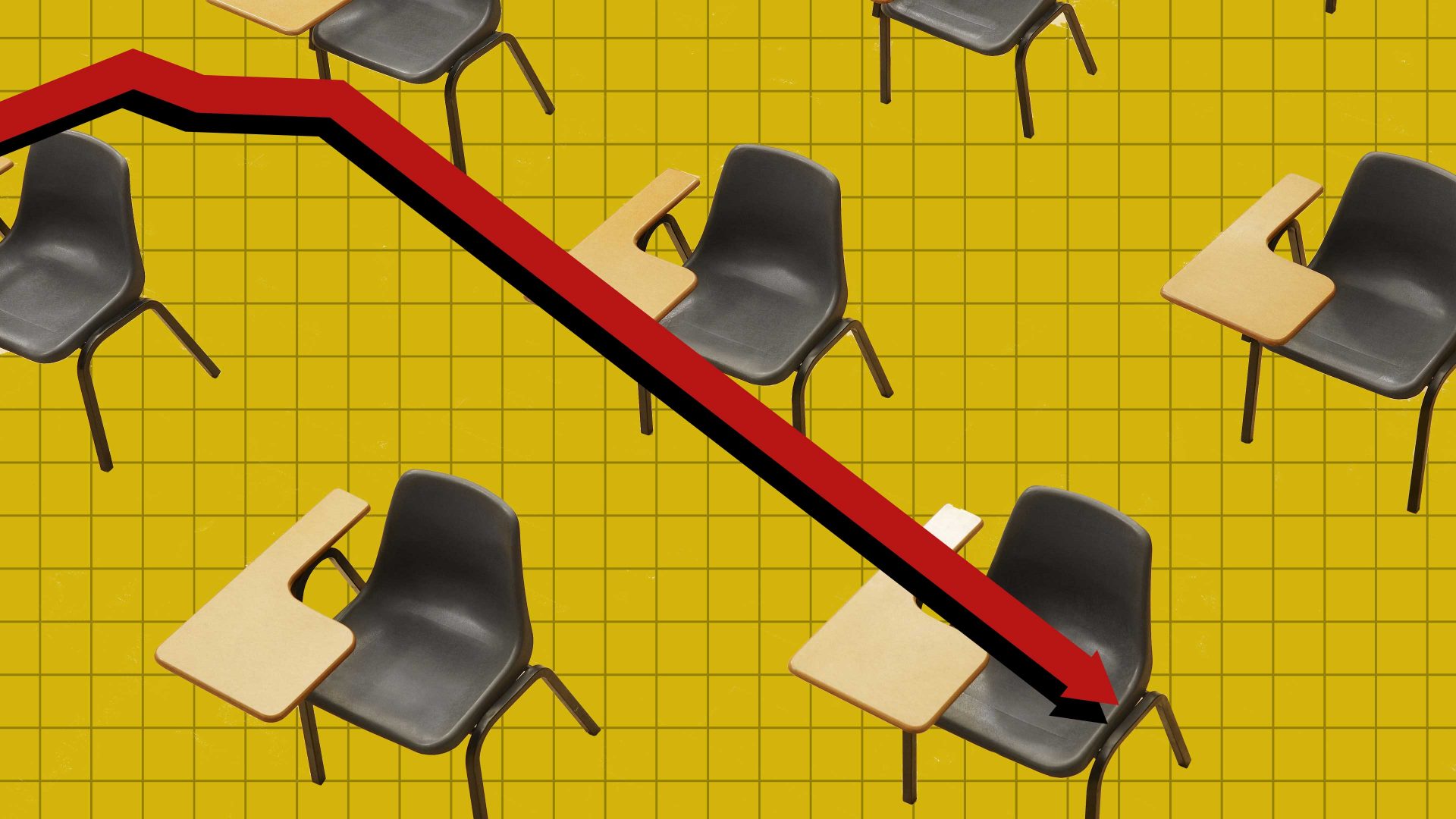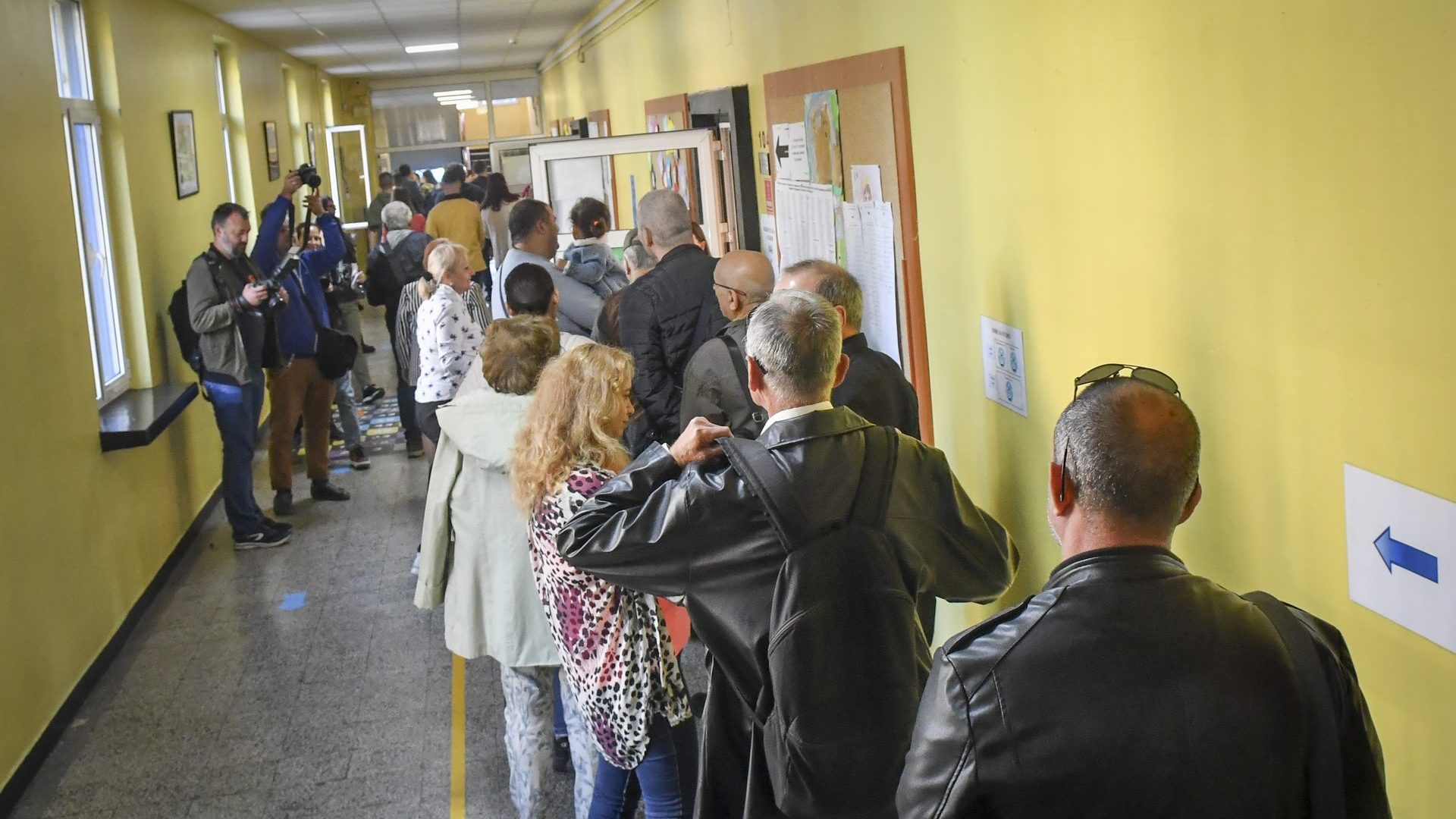If you’ve been tracking the escapades of How-dare-you-Greta, you might assume that the ongoing crime against juvenile humanity is climate change. A glance at Germany’s latest Programme for International Student Assessment (PISA) results, however, reveals a more immediate threat to our children’s future: the looming education crisis.
Experts had predicted a decline in achievement among 15-year-olds across the world because of pandemic-induced school closures. Now the PISA results align with global research regarding the pandemic’s adverse impact on education. Mathematics (minus 17%) and reading (down 11%) witnessed significant drops in mean levels, while science (down 2%) fared slightly better.
Alarmingly, the decline in Germany is far worse by international comparison with other countries in the Organisation for Economic Co-operation and Development (OECD), which sponsors the PISA tests. In maths (down 25%) German teens lost nearly a year’s worth of knowledge compared with kids in 2018, over half a year in reading (down 18%) and a third of a school year in science (down 11%). The 2022 results marked Germany’s lowest-ever scores.
I wish we could blame it all on Covid, but the stark drop confirms a trend that surfaced around 2012, with a substantial increase in students scoring below baseline levels. This is a massive issue, reminiscent of what we called the “PISA Schock” in 2000, when the country’s self-belief as the Land der Dichter und Denker (Land of poets and thinkers) took a hit. The recent findings are actually worse, with three out of 10 children below the baseline level in maths. They cannot say whether a special offer in the supermarket is actually a bargain, the OECD representative stated when presenting the findings in Berlin. Never has there been such a decline in competencies – it’s a historic low.
As for the UK, some results were stable, some went down, but in direct comparison with Germany, you outperform us in all fields. In maths, 76% of UK students attained at least a basic proficiency (Germany: 70%). In reading, 80% of UK 15-year-olds reached a basic or higher level (Germany 75%). Science: 80% of UK students vs 77% in Germany. The percentage of top performers in maths (UK 11%, Germany 9%) and reading (UK 10%, Germany 8%) is also higher.
All in all, the UK scored above the average in all three subjects, Germany only narrowly in one. And the key findings didn’t even address the fact that teens from Hamburg to Munich rarely read and struggle with concentrating in the classroom.
The only areas where German teens seem to be better off than in the UK are not performance-related. According to PISA, 14% of German pupils feel awkward or out of place in their school. In the UK it is 26%. This corresponds with fewer children in Germany reporting themselves to be victims of bullying: 21% of boys and girls compared with 27% of girls and 28% of boys in the UK (OECD average: 20-21%).
There is also a similarity: both countries grapple with the distraction of smartphones in classrooms.
While high achievers in Germany are insufficiently stimulated, the most concerning aspect is the rise in the percentage of low-achieving students in Germany in non-Gymnasium schools – it rose from 25% to 40%. This means that nearly half of pupils lack the right perspective for vocational training and further education because they don’t know enough maths and German.
The reasons for this crisis have been known for decades: schools particularly fail kids who don’t speak German at home and/or hail from poorer social backgrounds. Language tests and training ahead of primary school aren’t compulsory everywhere, and German federalism means that it is extremely difficult to effectively intervene from a national level. No wonder the federal minister for education, whose portfolio is mainly limited to universities, has already proposed to amend the constitution.
So far, the Länder may take money from Berlin but heavily guard their legal authority on education, although 14,500 full-time teaching positions are vacant (if interested, please apply – Germany is desperate). In some regions, every 10th lesson is cancelled.
Experts predict that the drop in maths competencies alone will cost Germany a staggering €14tn in economic potential over the next seven decades. But more importantly, it will cost those young people the prospect of making a decent living. Limiting children’s chances to such an extent at such an early age amounts to criminal negligence.




